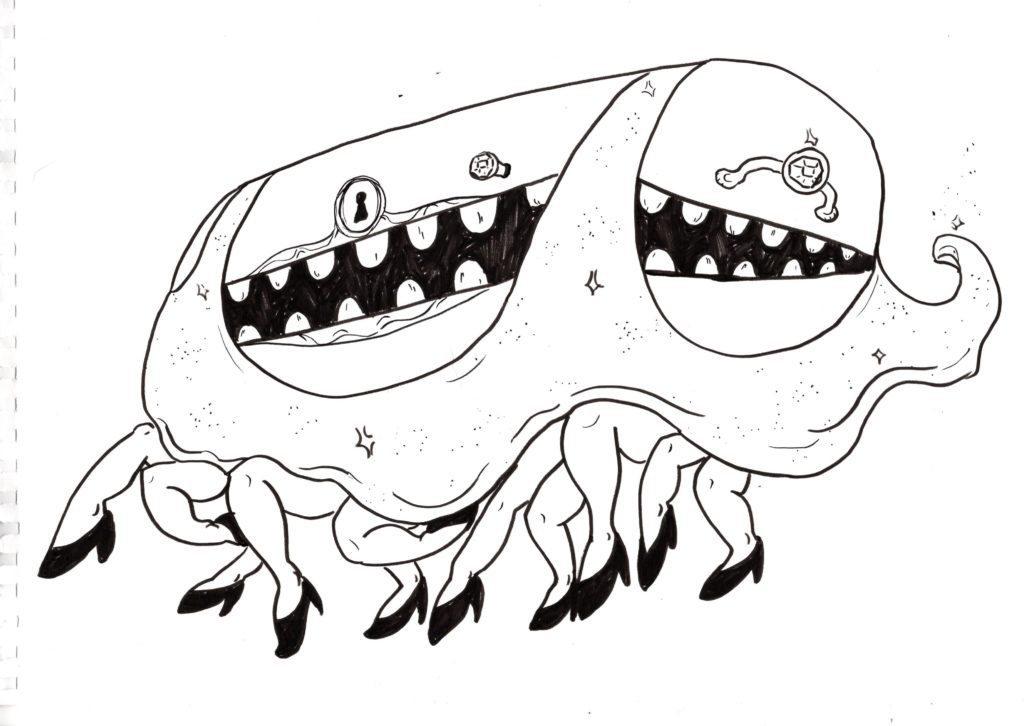#Pratchat19 – It Don’t Mean a Thing if it Ain’t Got Rocks In
In our nineteenth episode it’s back to the Discworld as we join Death, and meet his granddaughter Susan, as writer and illustrator Fury joins us to talk about Terry Pratchett’s 1994 Discworld novel, Soul Music!
Susan Sto Helit doesn’t have time for anything silly – not for grief, not for tiny skeletal rats who are here to inform her of SQUEAK, and most definitely not for this new craze sweeping the Disc. But “music with rocks in” has other ideas, and doesn’t care who gets swept up in the swell. With her long lost grandfather (the one with the bony knees) missing in action, Susan has no choice but to take on the family business and try not to….erm…rock the boat.
Pratchett is never one to shy away from the big themes and Soul Music packs a lot of punch into a deceptively simple plot. It explores grief, family, teenage obsession and showbiz. It also continues the story of Mort, and introduces us to some new characters that we quickly grow to love (and sadly never see again). With more music references and jokes than a Spinal Tap album, Soul Music is Imp-possible to put down. Got a favourite Discworld band name? Or an idea as good as “My Little Binky”? We’d love to hear from you! Use the hashtag #Pratchat19 on social media to join the conversation.
Podcast: Play in new window | Download (Duration: 2:14:40 — 62.0MB)
Guest Fury is a writer and author based in Naarm/Melbourne. Their book, an experimental graphic novel memoir titled I Don’t Understand How Emotions Work, is available here.
You’ll find the full show notes and errata for this episode on our web site.
As mentioned this episode, we recorded our first live show at Nullus Anxietas VII, discussing the short story Troll Bridge with author Tansy Rayner-Roberts! It’s in the podcast feed as #PratchatNA7, “A Troll New World”.
Next month we head to the skies and cling on for dear life as we finish the Bromeliad trilogy with Wings! Get your questions in via social media using the hashtag #Pratchat20.
Want to help us get to the end of our six(ish) year mission and read every Pratchett book – and more? You can support us with a tip, or a subscription for as little as $2 a month, and that’s cuttin’ our own throats! See our Support Us page for details.

